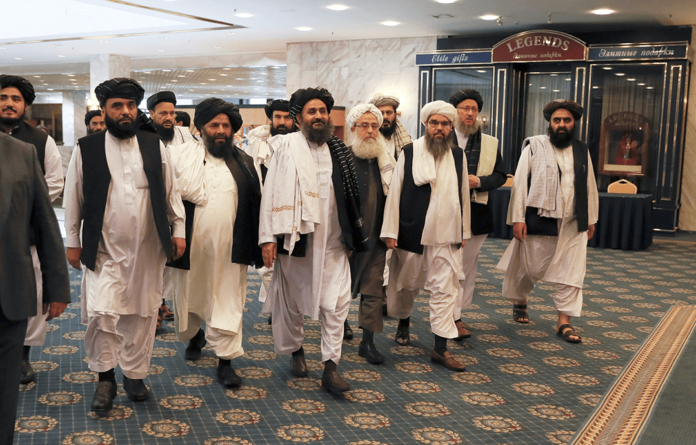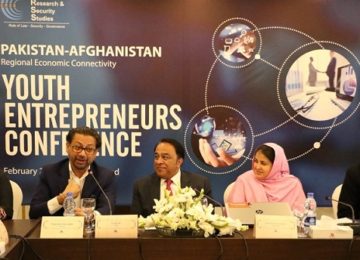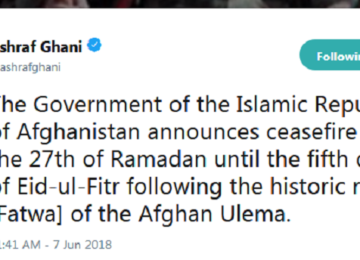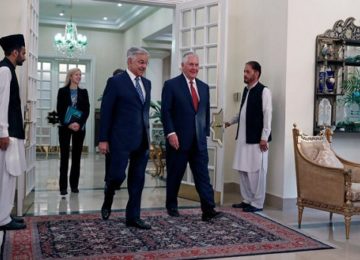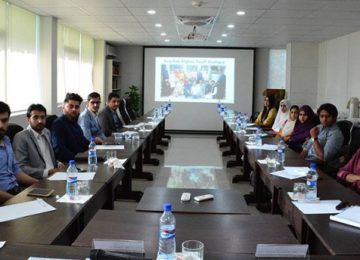The west has reduced engagement with the Taliban, but some Asian countries have actively engaged with them. The Afghan voice may be weaker globally, but it has gained momentum in the Asian region. At the 6th CICA summit, the countries’ representatives called for increased support and cooperation to stabilize Afghanistan.
Afghanistan is currently a hotbed of conflict and humanitarian crises. 97% of households are currently unable to meet basic needs, such as food and medical care. The vast majority of children report eating less, according to a Save the Children report. Some kids have one full meal per week or just one meal per day, which may only include bread and tea. Then, there is the issue of girls’ schools’ closure for grades 6-12. But there are some positive developments too. Girls are attending universities (in segregated classrooms and alternate days), there is peace (but it is tense), and no warlords! Besides, the Taliban are generating revenue, which, needs a regulated mechanism to sustain.
The west has decreased interaction with Afghanistan because the de facto group is not reopening girls’ schools, has reduced women’s participation in public and private offices, and curtailed freedom of expression across the country. Secondly, the Taliban are still seen as feeble or incapable of combatting terrorist outfits such as Al Qaeda, the Islamic State of Khurasan (IS-K), etc.
However, engagement with the Taliban is the only way forward. The humanitarian, economic, and governance crises in the country can only be mitigated if the international community continues the process of communication with the Afghan authorities.
Though the western engagement with the Taliban is not as much as it should be, the countries in the Asian region show consensus when it comes to interacting with the de facto group. Kazakhstan recently hosted the sixth Summit of the Conference on Interaction and Confidence Building Measures in Asia (CICA) on October 12 and 13, 2022. CICA has evolved into a multilateral instrument for strengthening security and prosperity on the Asian continent. Presently, CICA has 27 member states encompassing nearly 90 percent of the territory and population of Asia, generating around two-thirds of the global GDP – this adds to the influence of the forum.
This year’s summit strongly echoed the dire need for continuing engagement with the Taliban. Shavkat Mirziyoyev, the president of Uzbekistan, urged the formation of an international body to plan with and cooperate with the Afghan government when speaking at the 6th CICA Summit in Astana in 2022. “We suggest considering the possibility of Asian countries jointly addressing the UN General Assembly with an initiative to establish an international group of high-level negotiators to arrange and coordinate with the Afghan authorities to achieve a broad consensus on Afghan issues and practical measures globally. This would enable the parties to gradually fulfill their commitments.”, Mirziyoyev said,
On the occasion, Ebrahim Raisi, the president of Iran, also recommended the formation of an inclusive administration in Afghanistan. “To restore normalcy to the situation in Afghanistan, the members of the CIAC must work together”, said Russian President Vladimir Putin. “To help Afghanistan’s economy, recover and return to normal, we must all work together to do so, but first, we call on everyone to repay the damage inflicted on the Afghan people during the years of occupations to unfreeze illegally frozen Afghan assets.”, he added.
It is noteworthy that though the countries like Russia, China, Pakistan, and Central Asian republics have not recognized the de facto government in Afghanistan, they have emerged as strong proponents of engaging with the Taliban to ensure regional stability.
Other than the sixth CICA meeting, there have been some other key summits on Afghanistan.
Pakistan held two summits of OIC to address the Afghan crisis, one in December 2021 and another earlier this year in March 2022.
China is also ardently focusing on ensuring stability in Afghanistan. To address the dire humanitarian situation in Afghanistan, China also held Foreign Ministers’ meetings among the neighboring countries of Afghanistan in Tunxi, Anhui Province of China, in March 2022.
Besides, it also held an ‘Extended Troika’ with Pakistan, Russia, and the US. China has not recognized the Taliban yet, but it has not been bluntly critical of the Taliban either. China is ready to promote synergy between the Belt and Road Initiative and the development strategies of Afghanistan and support the smooth operation of the China-Afghanistan freight train services, to help Afghanistan better integrate into the regional economic integration.
Tashkent hosted an international conference on Afghanistan on July 26, 2022, which was attended by more than 100 delegations from nearly 30 countries. Several representatives, especially those from Central Asia, were pushing toward an eventual normalization of relations with the new powers in Kabul.
On the same day, Uzbekistan also hosted an international conference to garner support for the economic and social revival of Afghanistan. Uzbek President Shavkat Mirziyoyev urged the Taliban to take decisive measures to tackle terrorism. The conference was attended by dozens of governments and international organizations from Europe, the Middle East, Asia, and other regions participated in the conference.
The Oslo talks held in January 2022 were also an attempt from the European side to push the Taliban on women’s rights in return for access to frozen funds.
While still awaiting recognition, the Taliban are often heard saying that their return has stabilized the region and ended the war. The Taliban’s spokesperson, Zabiullah Mujahid, recently told media that there is enough security across Afghanistan to restart major economic projects that stopped due to decades of war, despite a slew of attacks rocking the country since the group seized power more than a year ago. “Afghanistan has the opportunity to connect with the rest of the countries in the region, highlighting China as a key part of the nation’s economic development. In the last Cabinet meeting, it was decided that the Silk Road, which will connect Afghanistan with China, must be built. This historic road can play a great role in the economy of the country,” he said at a seminar about regional connectivity.
While the region has ardently been focusing on how to restabilize Afghanistan, the Taliban must also act on their promises of normalizing girls’ education, upholding human rights, tackling terrorism, and forming an inclusive government – which are all Afghanistan’s internal needs, but the international community has also set the same prerequisites for the de facto authority’s recognition. If the Taliban want the world to trust and support them, they must do the needful – to earn goodwill at home as well as abroad.
Dated: October 15, 2022
Originally published in Matrix Magazine
By Elsa Imdad
Elsa Imdad is a USG Alumna. She holds a bachelors in modern languages with an English major and Spanish minor. She has previously been part of American Spaces in Pakistan and now works as a Project Coordinator at the Center for Research and Security Studies. She is also a weekly contributor for Matrix. Her interests include public diplomacy, language teaching, peace and conflict resolution, capacity building for marginalized groups, etc.



